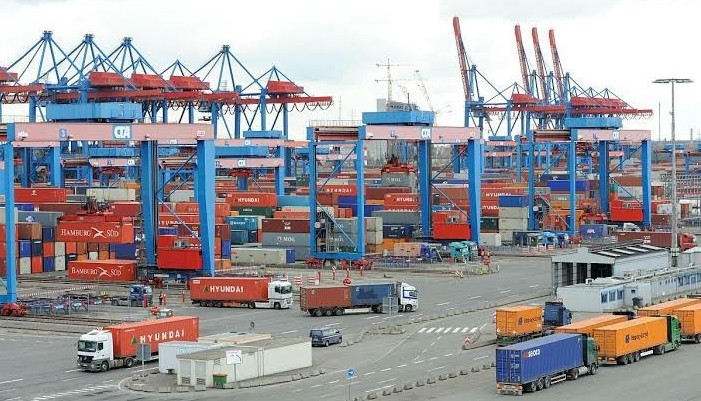
Following last week’s public hearing on the International Cargo Tracking Note (ICTN) by the House of Representatives Committees on Shipping Services, Customs, Ports and Harbour, and Maritime Safety, Education, and Administration, stakeholders in the nation’s maritime industry have voiced their perspectives on the non-implementation of the ICTN.
Recall that at the hearing, the Nigeria Shippers Council (NSC) highlighted the costly implications of the delay, estimating a $500 million annual loss.
The ICTN, a cargo tracking technology introduced by the NSC in 2019, aims to improve security and provide detailed shipping data by mandating documentation for all shipments into Nigeria. However, industry players have mixed reactions on its potential impact, effectiveness, and implementation challenges.
Reacting to the recent meeting, Babatunde Mukaila, a chieftain in the Association of Nigerian Licensed Customs Agents (ANLCA) described the ICTN as “a welcome development at this material time,” emphasizing that Nigerian ports remain vulnerable to infiltration by international criminals.
According to Mukaila, the Nigeria Customs Service has shown progress in intelligence gathering and international collaboration, yet the nation’s borders and ports still face threats from criminals.
“A cargo tracking note is going to be very effective to tell the government of the day what is in each consignment,” he noted, stressing the importance of ICTN in curbing the influx of dangerous goods.
“The growing insurgents, a lot of criminality, and easy access to ammunition within the country is becoming worrisome. So, I’m in support of cargo tracking, provided it serves the purpose and is not manipulated for just the purpose of gathering money,” he added, cautioning against turning ICTN into a mere revenue tool.
Mukaila urged that the ICTN focuses primarily on security before revenue generation, concluding.
On the other hand, Frank Obiekezie, National Secretary of the Association of Registered Freight Forwarders of Nigeria, took a more guarded stance. “This is not the first time that we are talking about cargo tracking,” he said, indicating that while ICTN could provide valuable security and statistical benefits, the history of similar policies raises concerns. Obiekezie expressed distrust in government policies, citing instances where new measures include “hidden ingredients” not initially disclosed, potentially serving other undisclosed economic purposes.
“We don’t trust the government on any policy they come up with, because most of the time there are hidden ingredients that they will not bring to the fore,” he said.
He further raised concerns around the ICTN’s potential impact on the cost and speed of cargo clearing. “What we are saying is that it must not impede the clearing process,” he continued, explaining that ICTN should not lead to increased costs, especially amid recent economic strains due to fluctuating exchange rates.
“Security is important, we’re supposed to know everything that is coming into Nigeria, but we are afraid that it may add to the cost of clearing,” Obiekezie concluded, urging that ICTN should not add burden to an already challenged economy.
Speaking also, a freight forwarder; Ekechi Monica acknowledged ICTN’s potentials, but warned of likely bureaucratic obstacles. “The ICTN could help us identify all incoming goods, but it must be managed transparently and efficiently”, she said.
She noted that without streamlined and transparent processes, ICTN could become a bottleneck that would hinder both trade and revenue. “If the process is slowed by red tape or mismanagement, we risk losing both time and revenue,” he cautioned, emphasizing the importance of good governance and efficiency.
Also speaking, Stanley Nkemdilim a member of NAGAFF was supportive of ICTN, viewing it as a positive step for enhancing security in Nigeria’s ports. Citing concerns about piracy and the growing sophistication of smuggling methods.
“ICTN can enhance safety in our ports, reducing risks of theft and smuggling.” She stressed that the technology could serve as a safeguard against the infiltration of dangerous or illegal cargoes. However, she echoed the sentiment that the system should not impede trade competitiveness. “It’s crucial that we ensure the tracking system does not create a new barrier for trade competitiveness,” he said, calling for ICTN implementation to balance security needs with economic growth.















